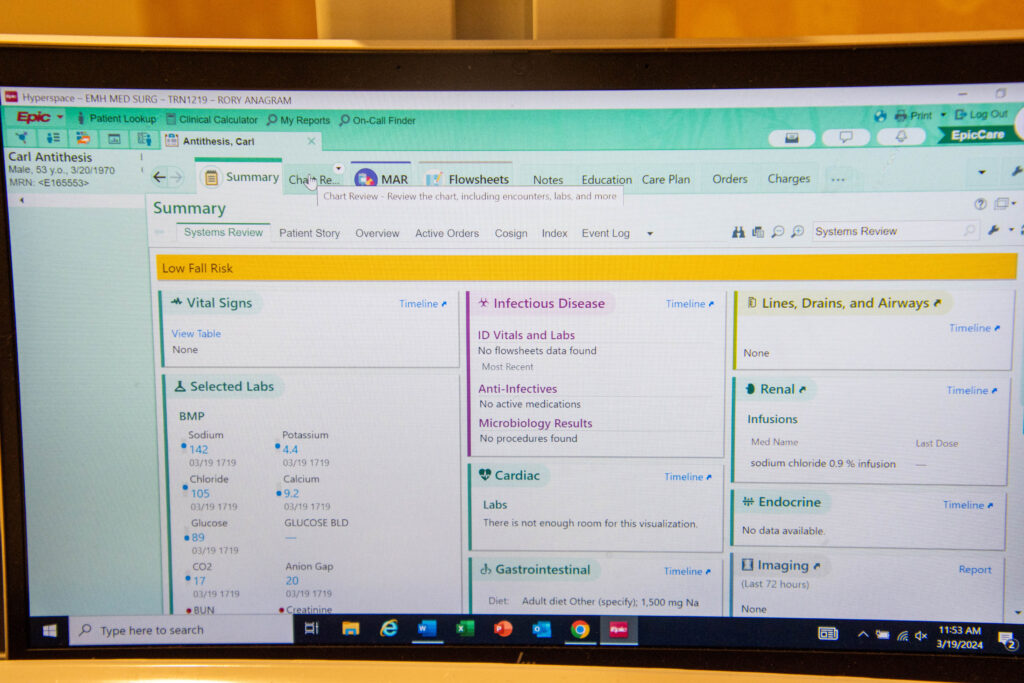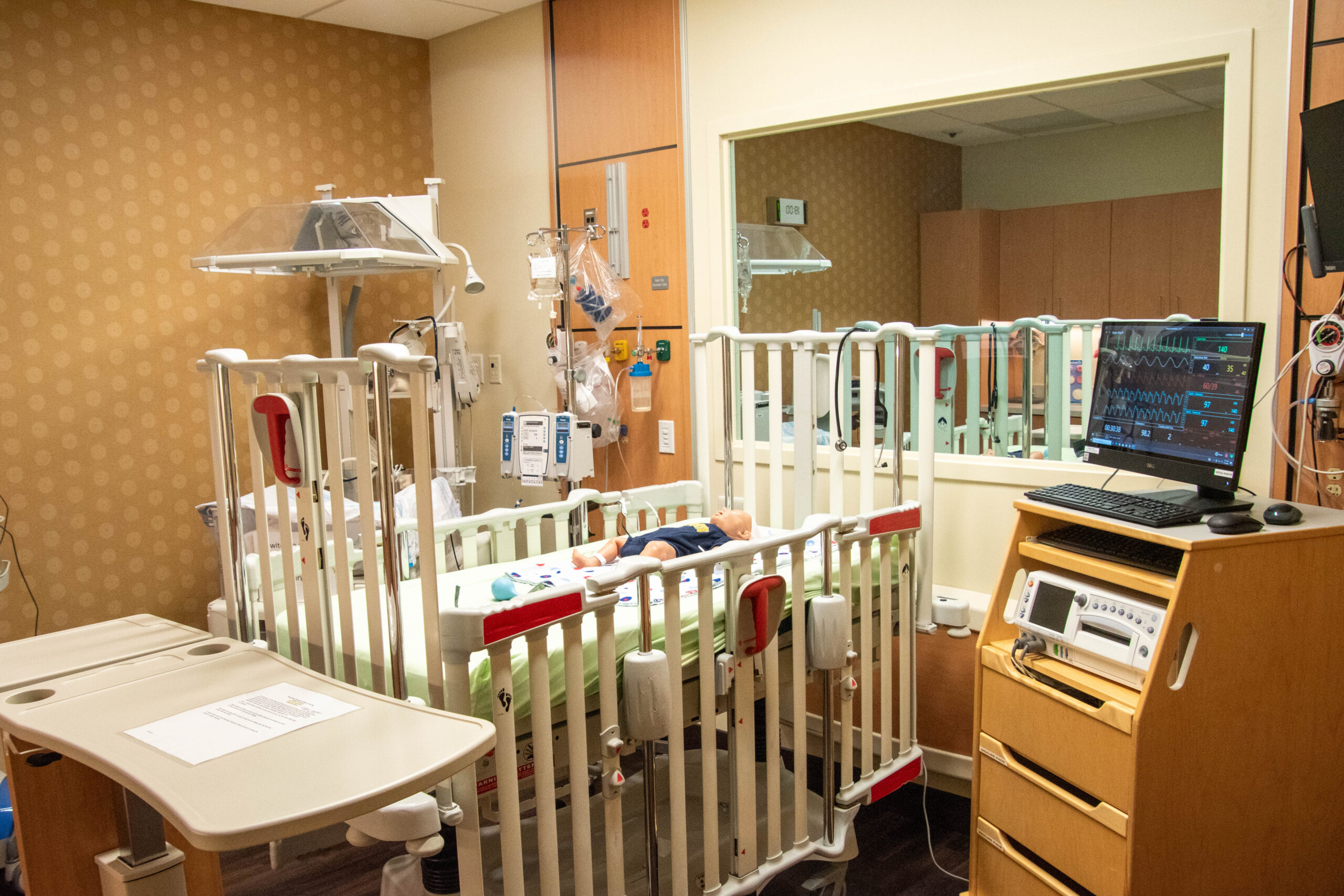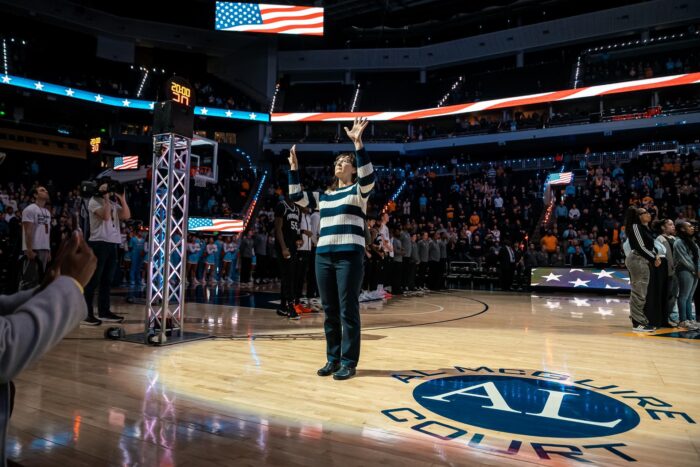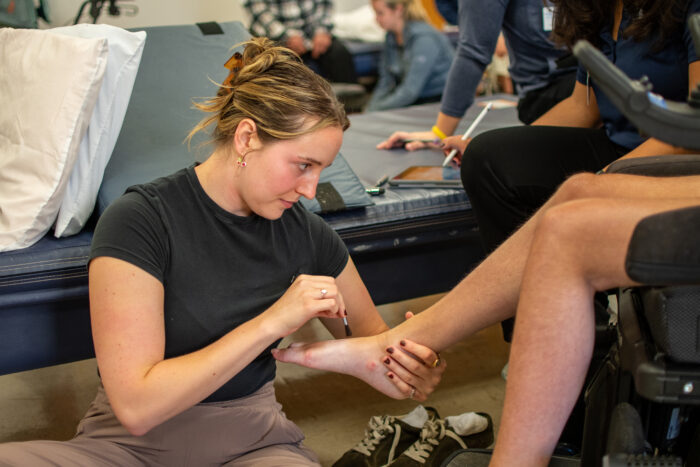Senior nursing major Michaela Eberhardt wants to work with children, so this simulation is perfect for her. Two pediatric patients: one six-year-old and one six-month-old. The six-year-old has recurring seizures, while the six-month-old is in respiratory distress due to RSV.
Eberhardt must review their medical information, determine which patient to prioritize, treat both and explain to her classmates what she’d tell the children’s parents about ongoing care.
It’s the best training for the real thing.
“Our sims really are how it is in the real world,” Eberhardt says. “You have to use your critical thinking and work as a team to figure out what you’ll do next.”
Undergraduates in the Transitioning into Professional Nursing Practice course must face a group of these simulations over their final semester. As part of their sim work, these future nurses are also required to chart patient data on Epic’s Lyceum educational platform. Marquette became Epic’s first undergraduate nursing client in fall 2023, allowing students to access health records software that is considered industry standard across most major health care systems.
Since the collaboration began, the College of Nursing and Epic have worked hard to determine the best way to use Lyceum to enhance simulation.
“Students have access to Epic technology at their clinical sites, but they have to deal with a lot there; here at simulation, they have time to play around with the software and get familiar with it,” says Casey Behm, a nursing simulation instructor.
“We’re learning right along with Marquette; this is a true collaboration instead of just providing a product,” says Maire Jacobs, an instructional designer and trainer at Epic.

Students went through the simulations with the awareness that others were observing them the whole time. Jacobs and fellow trainer Claire Eckerle were seeing how students interacted with the health records software. Their classmates and sim instructor sat in a debriefing room down the hall, watching on monitors as they tended to the mannequins.
While the feeling of being watched makes some students nervous, they calm down when they realize that simulation is a safe place to make mistakes.
“Sometimes we have issues with the IV pumps,” Behm says. “We had a pump that was beeping because the medication was complete, and several students turned off that whole pump rather than just turning off the medication and leaving the fluid drip going. This is why we do simulations: to correct things like that in a collaborative, supportive environment.”
After the simulation is complete, students are led into the debriefing room for an evaluation of the exercise. Participants use whiteboards with different color ink for various kinds of feedback: green for things that went well, red for things that can be improved and blue for suggested changes.
“The people in the classroom watch you write down everything on the board — what you were doing, how the patient responded, everything — because the people in the sim have a hard time remembering what they just did. It helps to review everything at the end,” Eberhardt says.
Students must complete one more step after leaving the simulation lab: log into Lyceum and record the patient data.
These future nurses are getting experience now doing pre- and post-documentation in Epic, and as their comfort-level with Epic increases, they will start practicing documenting in real time during simulations.
“If they have seen the technology before senior year, it becomes just another tool, not much different than reading the monitor or administering oxygen,” Jacobs says. “There’s a future where students have that same familiarity with Epic through use of Lyceum.”
The feedback cycle between Marquette and Epic has produced insights that Epic hopes can be used to expand Lyceum’s effectiveness.
The Clark Hall simulation laboratory only has a few weeks more of use until all its supplies are moved to the college’s new home, David A. Straz, Jr., Hall. The building, which spans more than 100,000 square feet, has roughly double the simulation space. This will allow more students to do multi-patient simulations like the one Eberhardt and her peers completed.
As the facilities grow, the college is also hoping to build out its use of Epic, creating synergy between physical space and software to allow for deeper student learning.
“I can’t say enough great things about the Marquette Nursing program, and I’m so excited to use the skills I learned here to dive into the real world,” Eberhardt says.



